I’ll start where Re:commerce2024 ended, with a speaker quote that struck a chord, and sums up some our of the thinking behind our Re:commerce event – “SEOs are pack animals, we are educators” – we’re an industry that shares, we follow the latest developments, interpret the insight and generally enjoy being ‘in it together’. SEO is a discipline where the goal posts constantly change, where learning and adapting are intrinsic to success, where we have to be educators and influencers within our businesses.
Re:commerce exists because at Re:signal, we want to play our part in sharing expertise, passing on knowledge and connecting clients and like-minded brands with the broader SEO community, so we can all learn from one another and navigate the future together.
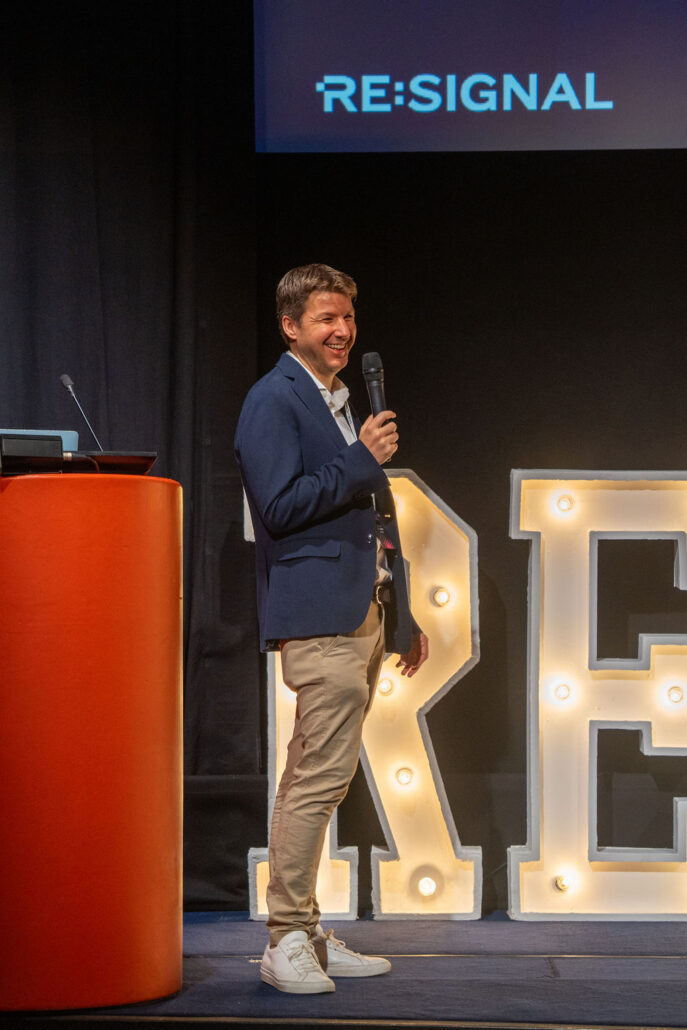
So what did we learn?
Practical hints and tips were plentiful through-out the day (presenter videos coming soon), but weaved across the talks were a number of recurring themes that set the stage for how ecommerce SEO and the broader search landscape is changing. I can’t do the depth of the content justice in a blog, but here’s my round-up of the big themes of the day:
Mediocracy is not a means of survival
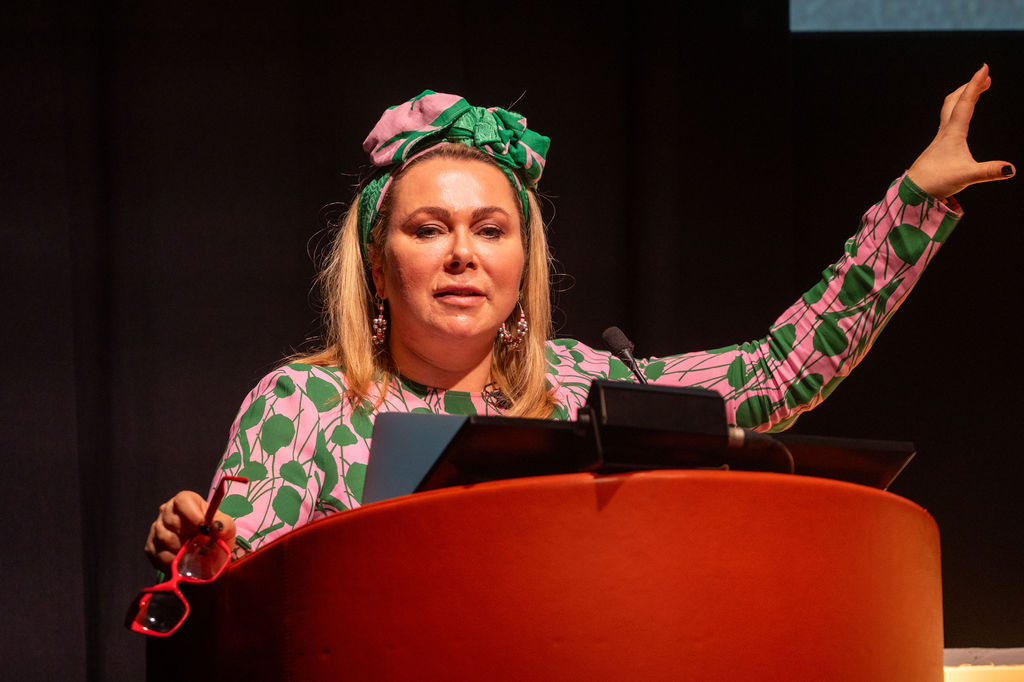
We kicked off with our keynote from Holly Tucker, Founder of Holly&Co and Notonthehighstreet. Holly’s clear message set the tone for the day – you have to be the most unique you can be! In her eyes, ‘scaling the unique’ is Holly’s mission. In a highly transactional world she reminded us of the power of emotional commerce and the scarcity of emotional connections with brands, encapsulated in her challenge to us all, “when I scratch your brand do you bleed something great?”.
“When I scratch your brand, do you bleed something great?”
Holly Tucker MBE
“We’re making word soup” was Jono Alderson’s provocation, with us needing to take responsibility for the low value pages now crowding the internet. We’re all doing the same keyword searches, creating the same lists and using those lists to create the same content, often outsourced to the same external agencies! And, we’re now asking AI to do it for us. With search engines evolving and the move to zero click searches, AI is starting to create the content itself. A stark reminder that search engines won’t need our content UNLESS it adds real value to the user.
We were reminded time and again that the game is changing, and Jes Scholz was clear on how you need to gain competitive advantage by adding more than your competitors. You need to be more interesting, bring something new to the conversation, stop focusing on keywords and be the answer to what your customers are genuinely interested in. Heed the warning that unhelpful content will be judged!
IKEA’s Arnoldo Cabrera shared some great examples of imaginative ways to get your brand noticed, building campaigns around IKEA hack ideas, recreating famous scenes with IKEA products and generating IKEA product solutions as the answer to ‘human problem’ searches. All novel ways to make your brand visible.
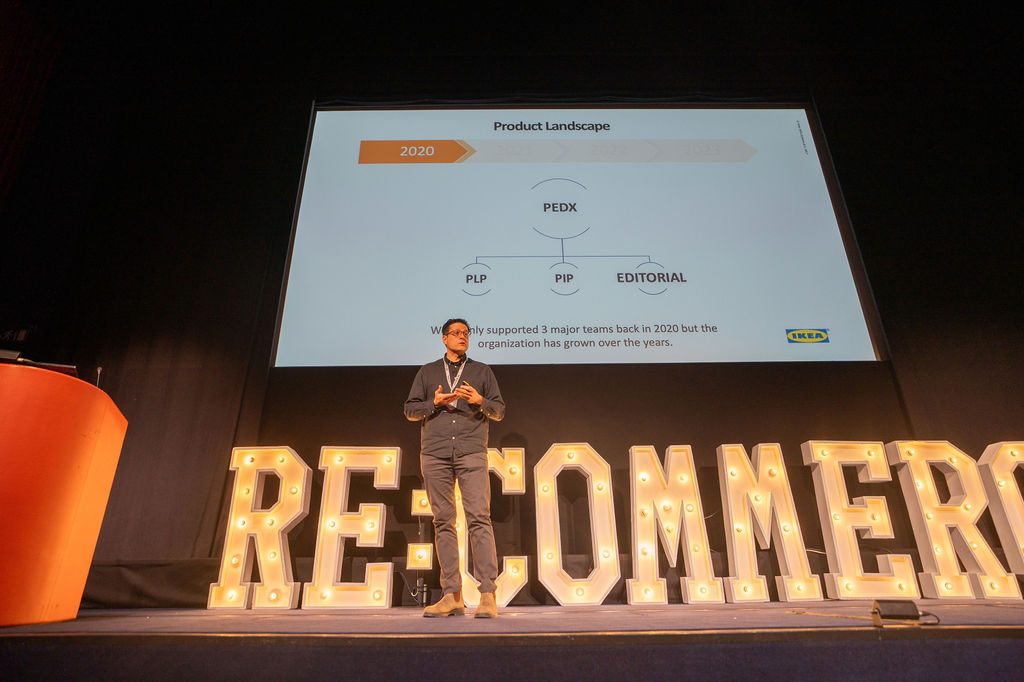
There’s positive in the negative
Failure isn’t necessarily a comfortable place, but it can be a great source of insight, with learning that propels us on to be better. This theme came through from a number of our speakers, with some practical advice on where you can take learning from.
Holly’s advice was to sit in the uncomfortable chair and make uncertainty your best friend, with a key takeaway from over 20 years running businesses being that the more uncomfortable you are, the better it is for your business. You need to break things and fix things to move forward, learning and seeking out new opportunities.
Kaspar Szymanski regaled us with his SEO horror stories, and a very simple and cost-effective piece of advice – to learn from other people’s mistakes. Look at what others have done and where they’ve failed as a means of navigating your way forward.
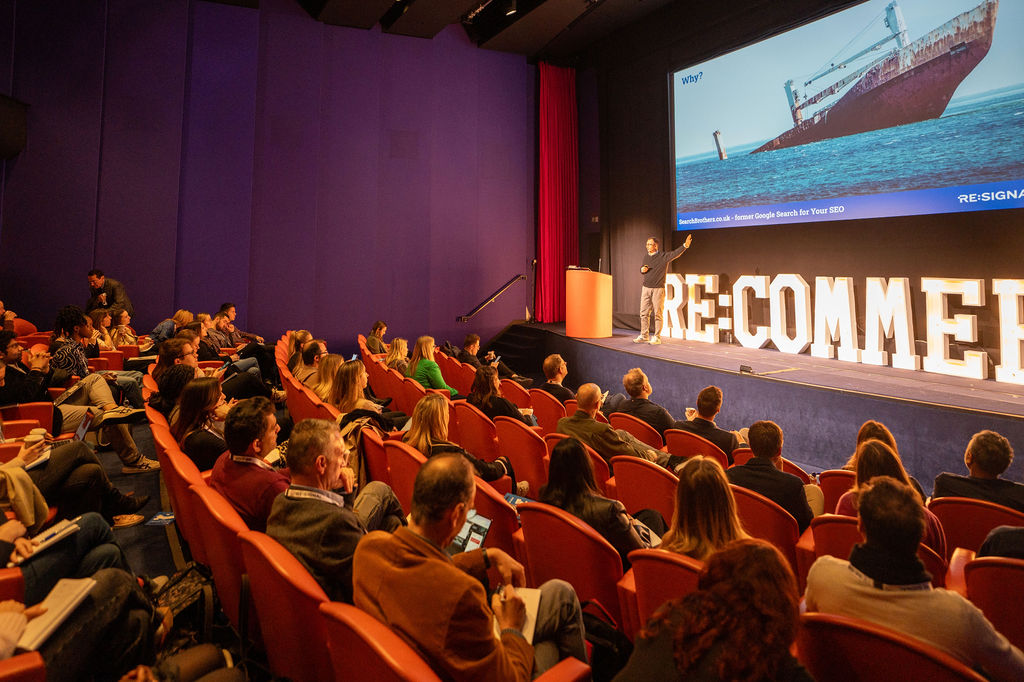
With a specific focus on ecommerce, Sophie Brannon pointed us towards the impact of returns on our bottom line, with the average ecommerce return rate being between 20-30%. At a practical level, the reasons people return items can be a source of intelligence for inspiring better content and product pages, improving SEO value. Examples such as returning items because they don’t match the description, or don’t fit, points to you needing clearer and more accurate sizing info, or visual, and text based content to describe the product, or maybe using UGC, so people can see what the product looks like in real-life.
Quality and user experience beats quantity
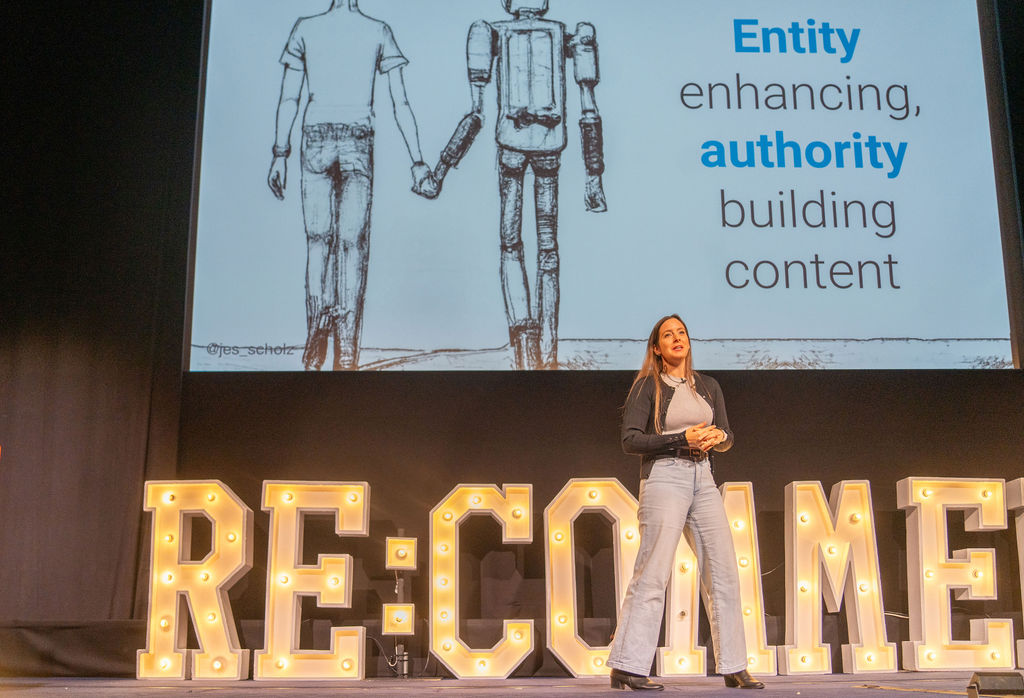
Jes talked to us about being ‘in the Gemini era’. We’re starting to see the end of structured data, with AI models and unsupervised learning searching for deeper level content. SEO strategy needs to adapt, moving us towards deeper content blocks, and content that can be served across multiple surfaces. Brand social media posts, videos, and articles will increasingly be pulled into search results, with video offering increased visibility. A clear message that your content has to be multi-format.
Kaspar iterated the need for fewer pages with better signals, with Kevin Indig encouraging us to remove low quality pages, stripping away the fat to concentrate on high-quality pages. Sophie added to this, telling us to concentrate on useful information, not just content, thinking about creating a great user experience. Have high quality images, 360 degree views, interactive try-on features and create an emotional connection through your imagery. Image carousels are now showing up for 60% of keyword searches, showing the importance of getting this right.
Concentrate on useful information, not just content!
Sophie Brannon
Re:signal’s Callum Lockwood also picked up the theme of delivering a great user experience through good site architecture, an obvious discipline, but not always executed well. He talked us through what good looks like to maximise SEO impact, but also to ensure easy website management, reduced duplication risk, ranking stability and revenue optimisation.
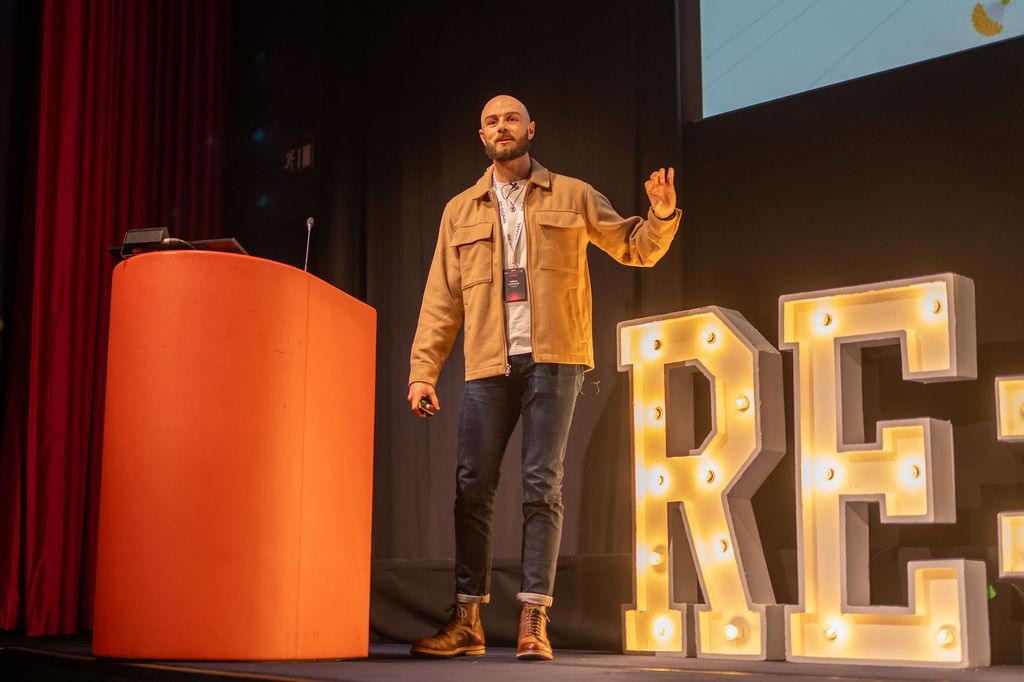
Cindy Krum summed this theme up well. We can expect EEAT to grow in importance, but to think about each element being a blended mix, rather than separate elements. Google evaluations are advanced and complex, they know content is liked, but they don’t necessarily know why. Her advice – optimise for what users want and give them an engaging experience, the rest will follow!
The game stakes just got higher
Through-out the day, our speakers talked about the landscape changing and the need to change and adapt to a world where AI will be in the driving seat of content curation and search.
We were reminded by Dawn Anderson that ‘the crowd’ are data labellers, we are constantly feeding Google with our preferences and they know us! Layer on AI and a sea-change is coming. AI is now more accurately predicting our preferences and is outperforming human evaluation for ranking, at a fraction of the cost. Algorithms are getting bigger, broader and multimodal. Google is on the way to learning what AI generated content looks like, what helpful content looks like, what paid links looks like – we are going to need to be better.
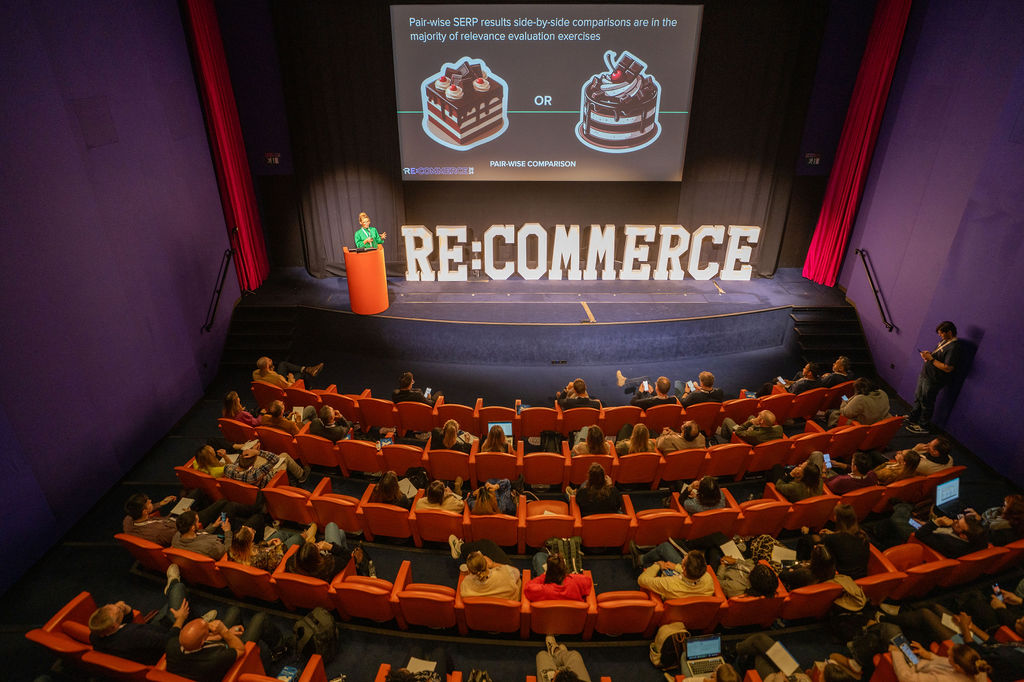
Google is fast becoming the category page, converting users on behalf of the brand. Jes predicts the end is near for category pages, with the need to focus on product enrichment, having valuable information other pages don’t have. We are going to be marketing to the AI – you need to convince Google to allow you to convince the user!
Arnoldo sees this as a transition from an information retrieval web, to one based on knowledge and trust. His advice is to build your brand and your content and knowledge around it.
Across discussions, the broadening of search channels came up time and time again. Google marketplace, Amazon, social networks and increased organic traffic growth on Reddit are all eating into brand visibility, with a need to plug into all of these channels to ensure growth. Great advice came from our panel on this – look beyond Google and optimise for anything that has a search box and ranking. You have to be where your customers are.
And a final word from Jono on this subject – you need to compete everywhere. TikTok, Reddit, and Amazon are all appearing in Google searches; the platforms are merging and so too should our tactics; last click is no longer the goal, you need to be the first click to win.
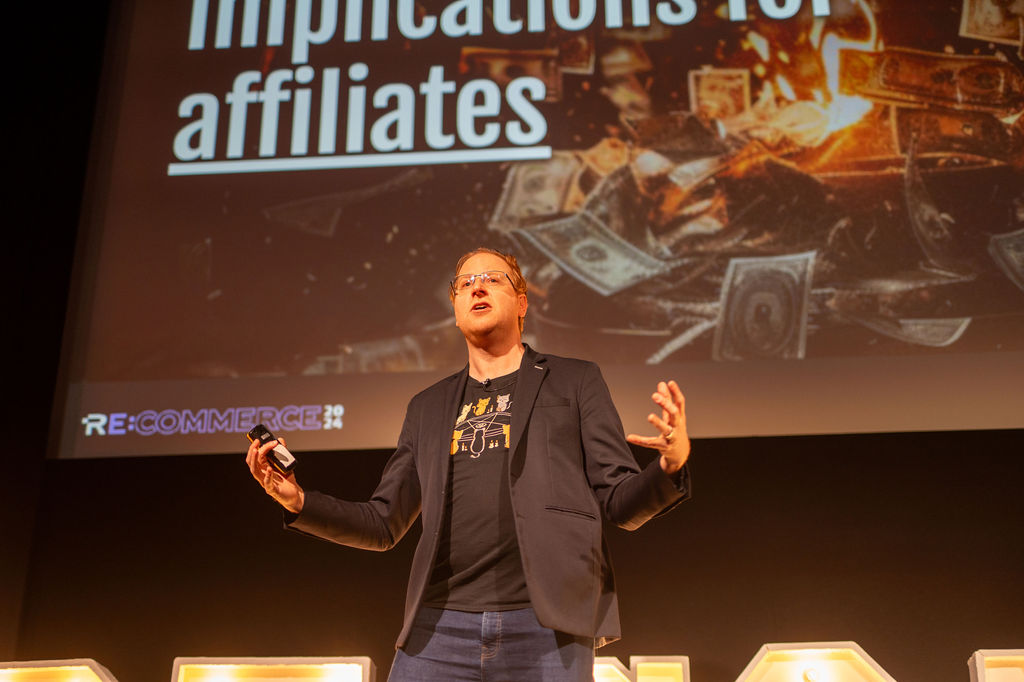
Re:commerce 2024 gave us plenty of food for thought, and whatever your takeaway from the event, we hope you walked away energised and inspired, having enjoyed the day and made some new connections. A big thank you to all our speakers – we wouldn’t be able to put on this event without you giving up your time to share your thoughts and challenge perspectives, so that we can be better when we’re back at our desks doing our day-to-day roles.
Going back to the beginning of the day, I’ll end the blog with some very pertinent words of wisdom from our keynote speaker, Holly:
We all look for that silver bullet that’s going to change everything, but the secret is that there is no silver bullet. Business is a game of little wins that fuel success.
Holly Tucker MBE
SEO is a game of incremental gains, long-term value creation, feeding your bottom line. I think Holly’s quote couldn’t encapsulate what we do better!



